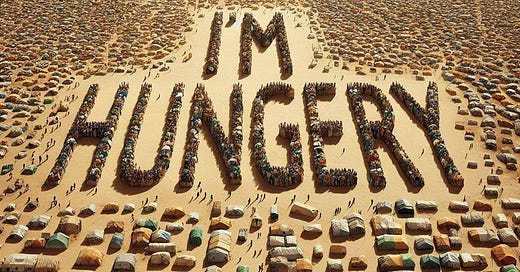We need to do something about this James Bond fellow.
Let me explain what I mean. Because I’m not saying it in a fun way, like maybe I’m pretending to be Goldfinger, having an incredible time on a private jet with my golden finger.
No, I’ve been reading Ian Fleming novels. I started with Dr. No, moved on to On Her Majesty’s Secret Service, and have just finished Casino Royale, the first installment in the series.
You don’t have to read the books in order. No one checks. I started reading them in the first place because I saw one in the New Fiction section at the library. Dr. No wasn’t new, but it had been reprinted, so, close enough, I guess.
I thought if I checked it out I might have a good time reading a book. I thought it could be a reading adventure, like what those kids have on Superwhy whenever they read books.
I had, also, been thinking about James Bond. I had been comparing him, in my mind, to Ethan Hunt, the hero of the Mission Impossible films and TV show.
When I compare any two characters in my mind—which I do only on occasions that demand it, as it is a laborious process that leaves me exhausted for days afterward—I shut my eyes as tightly as I can and picture one of the characters. Then, with great concentration, I imagine the image of the other character, some distance from the first, for safety’s sake. Through painstaking mental effort, I pull the first character closer to the other, and then do the same with the second, until finally they are side-by-side, no space between them at all. This can take hours, and someday it will kill me. But it’s the only way to go about this work that I know of.
In the end, I felt like Ethan Hunt was a much more interesting character than James Bond. He just seems like he does more things. He climbs, he runs, he puts on masks. He’s usually dressed for movement, and he’s good at pretending to be people he’s not.
What does James Bond do? Well, he looks good in a suit. He’s particular about how he likes his martinis to be served—so he has the formidable trait of being finnicky about drinks.
He doesn’t wear disguises, that I can recall. He rarely uses an alias. In fact, one of the things this international superspy is most famous for is the way he tells people his actual name, repeating his surname so as to give it extra emphasis and make sure everyone remembers to call him James Bond, which is his real name. It’s an intriguing quality to have, when you’re an agent of something called the “secret service.”
I went into reading Dr. No, the first 007 novel I picked up, with an open heart and an open mind. I wanted to have fun. I think it was printed on the back cover that none other than Raymond Chandler said Ian Fleming was the best suspense writer around. That’s quite an endorsement.
Raymond Chandler wasn’t wrong. Ian Fleming knows how to show readers a good time. The pace of his novels is consistently high. His hero travels to exotic locations. He eats great food and drinks a lot. The drinks are always good, and so is the food. He has hot sex with beautiful women to whom he is not attached in any way. They’re either provided to him by the secret service, as colleagues that he then sleeps with, or they appear out of thin air, like the woman whose name I forget from Dr. No. Bond arrives on the shore of an island, near Jamaica, where he suspects Dr. No has built his secret hideout. As he plans his next move, a woman walks over to where he is. She is startled to see him. She is beautiful and not wearing any clothes.
Now that I’ve read three Ian Fleming novels, it seems to me that the appeal of James Bond is that he’s a man who has everything handed to him. He messes up fairly consistently. He gets his friends killed, he gets captured, and he loses at baccarat when it’s his mission to not lose at baccarat. But somehow, by god, he wins, usually thanks to someone else intervening on his behalf, and in the end M begrudgingly congratulates him. 007 has done it again! The women he falls in love with, and to whom he comes around to feeling he could perhaps actually devote himself to, conveniently die, so that he never has to follow through with being tied down.
The novels are a breeze to read, and it’s fun to read a breeze. But let’s face it: as a character, James Bond kind of sucks. To illustrate how much he sucks, let me cite a couple of passages from Casino Royale.
In this first one, Bond has learned that Vesper, the woman who was assigned to aid him on his current mission, has been kidnapped, and is likely being used as bait to get to him:
This was just what he had been afraid of. These blithering women who thought they could do a man’s work. Why the hell couldn’t they stay at home and mind their pots and pans and stick to their frocks and gossip and leave men’s work to the men. And now for this to happen to him, just when the job had come off so beautifully. For Vesper to fall for an old trick like that and get herself snatched and probably held to ransom like some bloody heroine in a strip cartoon. The silly bitch.
This next passage is from the last stretch of the novel, when Bond has decided that Vesper isn’t so bad after all. He enjoys fucking her, and has started to think that maybe he could commit to a relationship, there, of some kind:
She gave little of her real personality away and he felt that however long they were together there would always be a private room inside her which he could never invade. She was thoughtful and full of consideration without being slavish and without compromising her arrogant spirit. And now he knew that she was profoundly, excitingly sensual, but that the conquest of her body, because of the central privacy in her, would each time have the sweet tang of rape. Loving her physically would each time be a thrilling voyage without the anticlimax of arrival. She would surrender herself avidly, he thought, and greedily enjoy all the intimacies of the bed without ever allowing herself to be possessed.
I’m not the first person to make note of this passage. An article from The Independent details efforts made to censor Ian Fleming’s novels with their latest reprinting—which I didn’t know about when I read these reprintings, and which actually bothers me more than anything else does. They took out racial slurs; they made Bond less racist. Still I thought Dr. No was an astonishingly racist novel. The character of Dr. No is a man from China who’s had both his arms removed by gangs. He’s replaced them with robot arms, and he wears contact lenses that make his eyes appear metallic.
Is that racist? Maybe not. It just seems like, when you take a novel’s sole Asian character, and you make him into a physically monstrous pervert, racism is the puddle you’ve stepped into, and it’s deeper and much colder than it may have appeared to be before you put your foot in there.
I haven’t watched a Bond film in a long time, because I don’t find them very interesting or good. But I watched some of Austin Powers with my kids recently. I know it’s a parody of Bond movies, but it may actually capture the spirit of 007 better than any Bond movies do. Bond is, for the most part, an incompetent who succeeds thanks to the work of his subordinates. He’s ridiculous.
All Eyes on Instagram
You may have seen that ALL EYES ON RAFAH image that circulated on Instagram recently. I saw it, myself, many times. I even posted it to my Instagram stories. If you didn’t see it, it looks like this:
At its center are the words ALL EYES ON RAFAH, with the letters made out of tents, at the center of a vast refugee camp, the likes of which have been bombed in Gaza recently, ending the mostly brief lives of many people.
It’s not a great image. The tents in it look less like tents to me than cars in a parking lot. I think it’s because they’re arranged so neatly. Why are they like that? It doesn’t make sense. Isn’t a refugee camp more hastily assembled than that? Don’t those neat rows of tents give the wrong impression, since it sounds like things on the ground are in fact pretty dire? Maybe I just don’t know enough about refugee camps.
Like most images generated using AI, it has certain traits that might make you say, “Well, that’s an interesting choice,” if anyone were indeed choosing to make any part of it. For instance, why do the tents stretch so far into the distance, giving the impression of unfettered sprawl, when Rafah is half the size of San Francisco? And why are there no buildings to be seen, when until recently, at least, Rafah had buildings in it? Doesn’t that misrepresent the place that the image declares our eyes are on? Doesn’t it make that statement seem kind of absurd? ALL EYES ON RAFAH? Sure, just look at this image that was shared millions of times on social media, which does not depict Rafah, and in fact has less in common with that real place than it does with the vague impression of the whole Middle Eastern region that persists in the mind’s eye of many Americans. That part of the world is nothing more than a vast desert with tents in it, like in Lawrence of Arabia. Right?
If a person made the image, they might take these things into consideration. But no one made it, a computer did, and you can only expect so much from a machine that tells me I’ve spelled “all right” the wrong way whenever I haven’t spelled it “alright.”
I don’t know for sure why I shared that image to Instagram. I think it’s because I’m as alarmed as many people are by what’s happening in Gaza, and don’t want to share the gruesome things I’ve seen online. When terrible things are happening, and your elected officials are helping to make it happen, with your own country’s resources, you have to do something about it on Instagram, don’t you?
Maybe when reality is too hideous to look at, imagery provided by AI can come to our aid. Maybe they can’t, but I have one other reason to see potential in images made by computers.
I was living in Columbia, Missouri, in the early 2010s, when they started building apartment complexes throughout the small town’s downtown area. When you move through the place today, those complexes are everywhere: so-called “luxury lofts” that are made of plastic and particle board and tower over the little buildings around them. They all look the same, and they all look ugly. They were made to house college students who grew up in the distant suburbs of St. Louis, and who feel right at home in that expensive kind of blandness. Columbia had a lot of character, when I moved there, and it still does, but it’s become harder to find, because now it’s got in it so many of those godawful loft buildings.
The first of these horrible structures went up across a busy street from Stephens College, an all-women’s school that Stefanie and I lived a couple of blocks from. No one who lived in Columbia wanted to see the luxury lofts get built. Everybody knew they would make just one or a handful of people rich, and that it would be good for them and bad for everyone else. Some of the locals campaigned to stop them from going up, but construction began despite their efforts, and we awoke one morning to the sound of blaring sirens. We walked out to see what was going on. Ashes were falling out of the sky as we made our way through the Stephens campus to where the not-yet-finished apartment complex had been set ablaze.
I don’t remember what the fire looked like. It must have been mostly put out by the time we arrived, or else I imagine I’d recall it better. I remember seeing, in the middle of the street, some traffic lights that had melted from the heat of the fire and dropped to the pavement. If I’d had a smartphone, I would have taken many photos. I’ll have to settle for including here one that’s from a TV news story about the fire:
We learned in days that followed that someone had set fire to the structure-in-progress on purpose. They had done the thing that I kept wishing someone would do. They had torched the construction site. The whole thing had gone up.
We knew that insurance would cover it all, that they’d start building again as soon as they cleared the wreckage. Still it felt good to see something I didn’t like burn. I had wished that fate on many things in my life, and it was deeply satisfying, to see it finally happen.
I don’t remember his name, but there was a guy in town who played in bands and could draw. After the fire, the police investigated him for a drawing he’d made, some months prior. It was for a flyer that promoted a show by a local band in town. On the flyer was an image of the apartment complex in flames, the one they were building that everyone hated, and which did indeed burst into flames.
At the time, I was alarmed by this. I didn’t want anything bad to happen to that guy. He didn’t set fire to anything. All he did was draw our collective fantasy. It was someone else who did the hard work of making it reality.
In retrospect, it’s very funny that cops would see that drawing and interpret it as a statement of intent, rather than an expression of what people in town were feeling. The fire was also an expression of what people in town were feeling.
But I thought of that episode when I was carrying groceries into the house the other day. I remembered the flyer and the trouble it got that guy into.
And I wondered if this is one of the good potential uses of AI image creation. You can make propaganda that expresses a viewpoint that might get you in trouble, and you can’t be held accountable for it, because you didn’t actually make it. The computer made it. It doesn’t even belong to you. The copyright is not yours.
Since these AI images started proliferating, I’ve been fairly confident they’ll never replace things made by human beings. I feel the same way about AI-generated songs, and the movies we’ll start seeing online. I know I could be wrong—but it seems more likely to me that these computer-made images / songs / films will circulate differently from the ones made by people. They’ll occupy different spaces, and serve other purposes.
For a while I’ve thought that we should protest gun violence at gun shows the way other people protest reproductive rights at Planned Parenthood. They hold up doctored images of what are purported to be aborted embryos, to dissuade women from terminating pregnancies. What if we posted photos of the aftermaths of school shootings, for people to se as they enter convention centers, where they want to purchase AR-15s? Why shouldn’t we remind them what the weapons that they’re buying might be used for?
I’d never want to do that with images of actual dead people. It would be disrespectful. But you could have a computer make similar images of fictional people, looking much like the real thing.
Get the Wordout
If you’ve been enjoying this newsletter so far, I have a favor to ask of you.
All I’m asking is for every single person who’s reading this to write a mass email to every single person they know or have met before, telling them about how much they love this newsletter and urging, if not begging, them to subscribe to it.
I don’t want to seem pushy—I mean, I know how I can come across sometimes—but everyone owes me this. Everyone. Full stop.
I’ve written a script, to make it easier for you. Please, by all means, feel free to copy and paste this prepared letter and send it to your contacts,
Dear Friend,
I am writing to tell you about an incredible opportunity you have right now to share in some wonderful insights, delivered in striking and elegant prose, several times a month and at no cost to you. That’s right. It’s absolutely free.
What do you have against things that are free? Why do you have to be suspicious of everything? What do you think this is?
Seriously. Why are you being like this? I am running out of patience. This is ridiculous.
All right. I’m sorry. Let me just breathe for a second.
I’m going to be completely honest. My life is on the line. If Robert Long Foreman doesn’t get more subscribers to the Pig City News Weekly Register Hoedown Quarterly Review Times a Thousand, and if it doesn’t happen soon, a monster is going to eat me. It’s a really big monster of unknown origin that can’t be reasoned with. It emerged from the deep, and it has a limited understanding of newsletters.
Save me. Please. Subscribe now, before it’s too late.
Yours in solidarity,
[YOUR NAME HERE]















Share this post